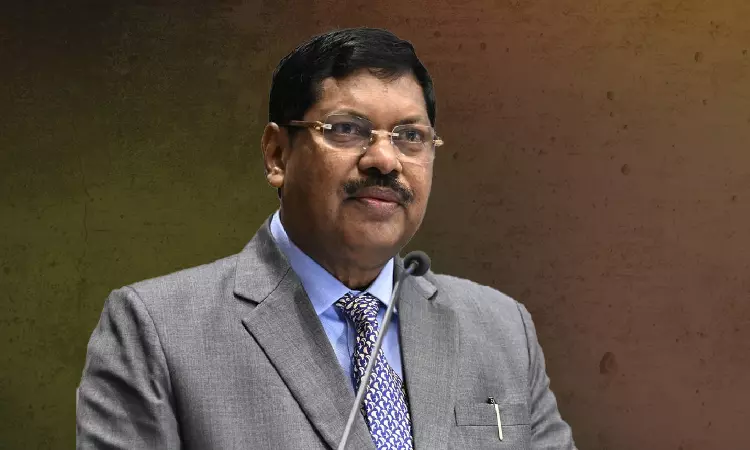- Home
- /
- Top Stories
- /
- 'Technology Must Not Replace...
'Technology Must Not Replace Judicial Functions' : CJI BR Gavai Sounds Caution About Use Of AI & Automated Systems
LIVELAW NEWS NETWORK
10 Jun 2025 12:52 PM IST
Chief Justice of India BR Gavai has underscored the need for cautious integration of technology and Artificial Intelligence (AI) in the judicial system, asserting that while technology can be a valuable tool, it must not undermine the core tenets of judicial reasoning.CJI Gavai said that around the world, the rise of automated decision- making systems raises questions about the nature of...
Chief Justice of India BR Gavai has underscored the need for cautious integration of technology and Artificial Intelligence (AI) in the judicial system, asserting that while technology can be a valuable tool, it must not undermine the core tenets of judicial reasoning.
CJI Gavai said that around the world, the rise of automated decision- making systems raises questions about the nature of justice and the role of human judges.
Speaking on the topic "Role of Technology to Improve Access to Justice" at Cambridge University, CJI Gavai stated, “The path forward demands adherence to fundamental principles. Technology must enhance rather than replace judicial functions, particularly reasoned decision-making and individual case assessment. We must ensure that automated systems support rather than supplant judicial judgment.”
The integration of technology also brings questions of privacy and data security, the Chief Justice said, pointing out that justice systems handle highly sensitive information, and digitization creates new vulnerabilities that necessitate cybersecurity and privacy protocols.
"Algorithmic bias and discrimination are further concerns, as AI and machine learning systems trained on historical data may perpetuate or amplify existing societal biases," he added.
"Technology, like any human creation, does not naturally possess these clean hands, but it carries the stains of divisions that can exclude the marginalized, algorithmic biases that perpetuate discrimination, and systemic unfairness embedded in its very code. The burden, therefore, falls squarely on us to cleanse and strengthen our systems before we can rightfully expect technology to serve justice," CJI Gavai cautioned.
In his address, CJI Gavai said that geographical and linguistic barriers to access to justice in a vast and diverse country like India are being diluted with the help of technology. Video conferencing technology has ensured that lawyers can appear in the Supreme Court from any part of the country.
CJI also stated that case backlogs have begun to show improvement through automated case management systems and digital processing. Procedural delays that once stretched for months have been reduced through electronic workflows and automated notifications.
CJI mentioned about tools like the Supreme Court Vidhik Anuvaad Software (SUVAS), which translates judgments into regional languages, the e-courts project, which enables citizens to track the case status and access orders on a realtime bassis, the National Judicial Data Grid (NJDG) giving real-time statistics about case pendency in all courts. CJI also spoke about the technology tools being used by the National Legal Services Authority such as “Nyay Mitra”, “Nyay Sampark”, LESA (Legal Services App) etc., which help common people to access free legal aid and track the progress of their cases.
"These technological interventions collectively address the Constitution's promise of social, economic, and political justice for all citizens. They have attempted to transform rights into accessible services, reduced delays that deny justice through prolonged proceedings, and create transparency that builds public confidence in judicial institutions," CJI Gavai said.
At the same time, CJI addressed concerns about the digital divide which can impact the marginalised sections.
"We must also acknowledge that technology can act as a double-edged sword, which may also lead to unparalleled divides. A primary concern is the digital divide, where unequal access to internet connectivity, devices, and digital literacy can lead to the exclusion of marginalized communities who already face barriers to justice. For technology to truly serve justice, accessibility and inclusion must be foundational to its design"



